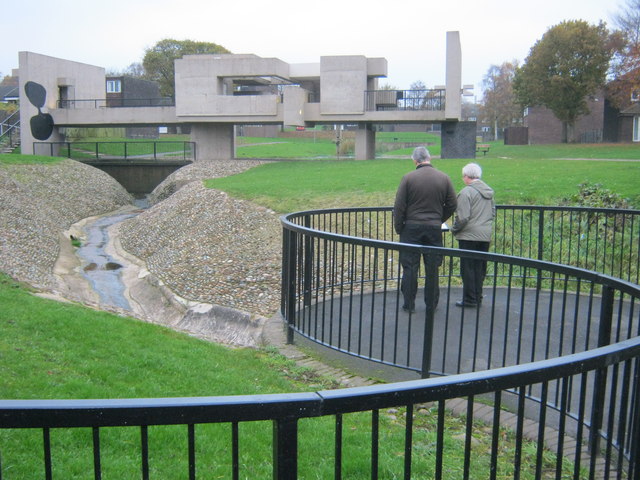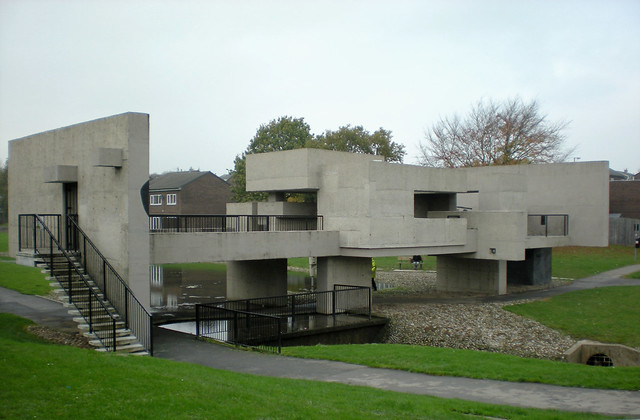Apollo Pavilion, Peterlee

-
Description
"Tucked away in a housing estate in Peterlee, a 1950s new town in East Durham, is a piece of urban art which is revered by some and loathed by others. A sort of concrete Marmite. It’s described as brutalist architecture and was designed by the then Consulting Director of Architectural Design of the Peterlee Development Corporation, Victor Pasmore. It was built in 1969 at a cost of £33,000 and named “The Apollo Pavilion” after the Apollo Space Program. Almost immediately it attracted a huge amount of negative criticism by the local community and became a target for vandals and graffiti artists. The local council refused to assume responsibility for cleaning and repair. In 1982, Pasmore, in a meeting with local residents, defended his work and, in a wonderful piece of diplomacy, suggested that the solution would not be to remove the artwork, but rather the locals that were abusing it. In the event stairs were removed restricting access to the upper levels. Moods and attitudes must have changed in the Nineties and Naughties for in 2009 the pavilion was restored at a cost of £400,000 and in 2011 it was given Grade-II* listing. For more information see the Apollo Pavilion website http://www.apollopavilion.info/Pages/default.aspx" Photo by Mick Garratt, 2016. -
Owner
Mick Garratt -
Source
Geograph (Geograph) -
License
What does this mean? Creative Commons License
-
Further information
Link: http://www.geograph.org.uk/photo/4842706
Resource type: Image
Added by: Simon Cotterill
Last modified: 8 years, 10 months ago
Viewed: 1138 times
Picture Taken: 2016-02-27 -
Co-Curate tags








